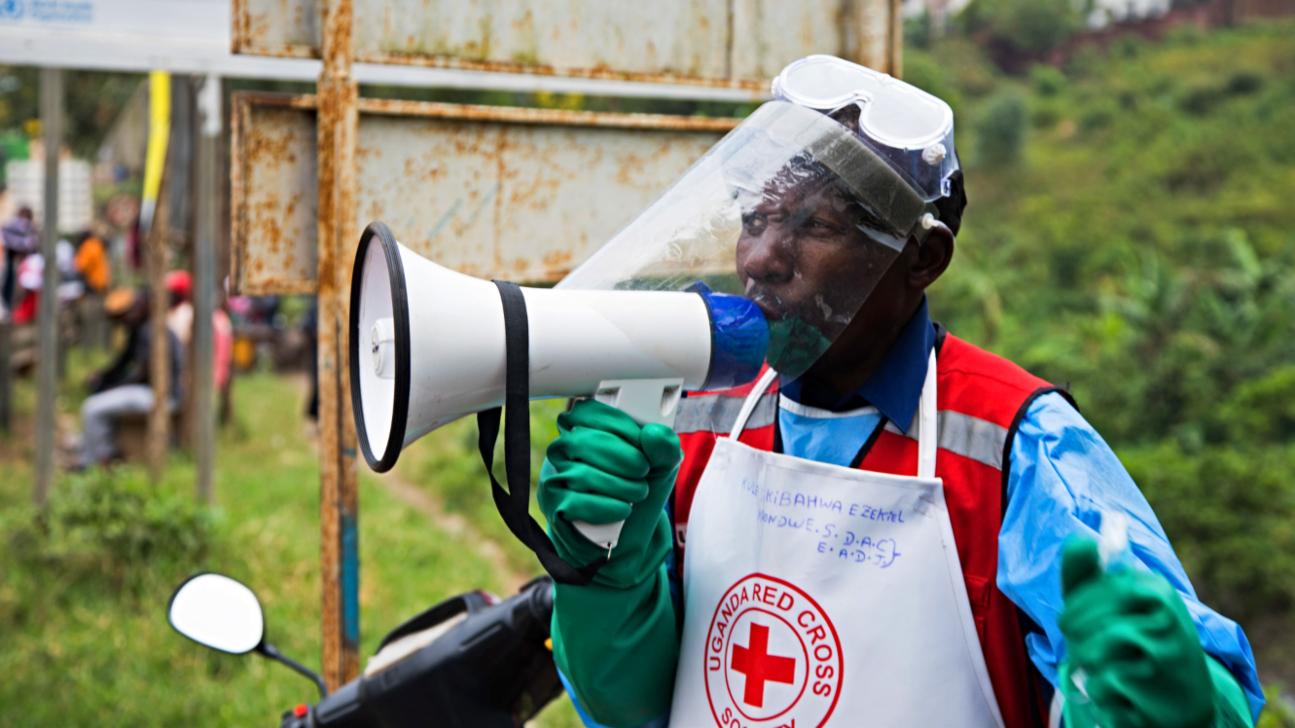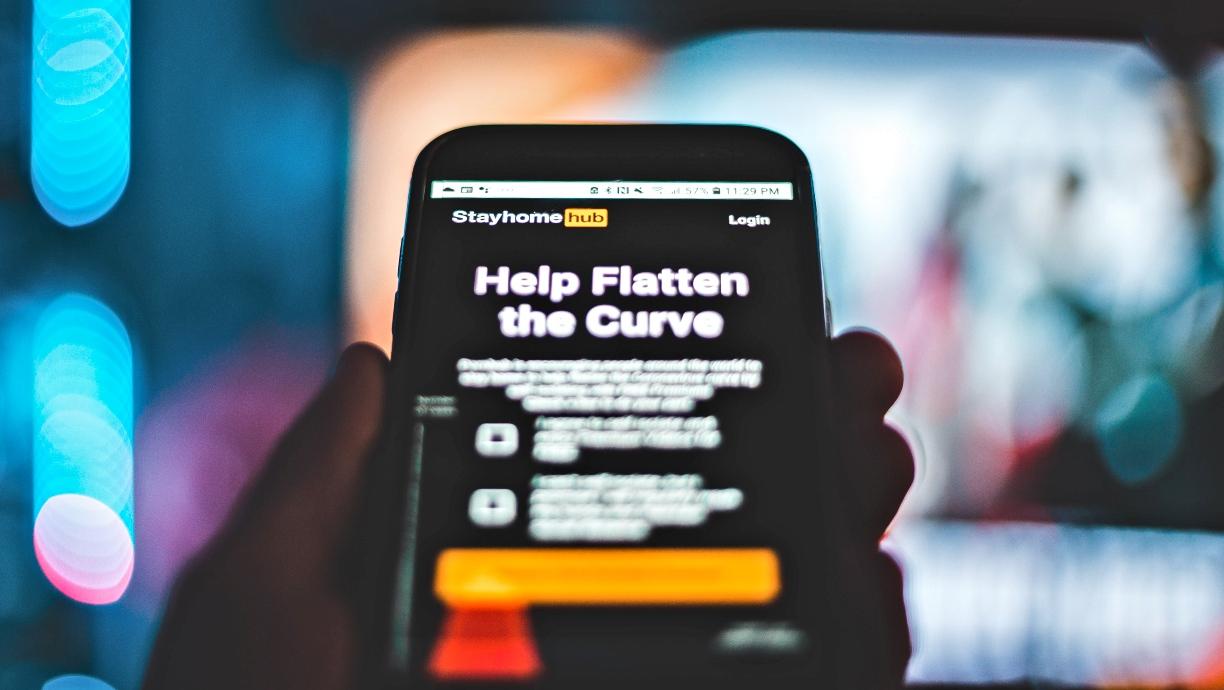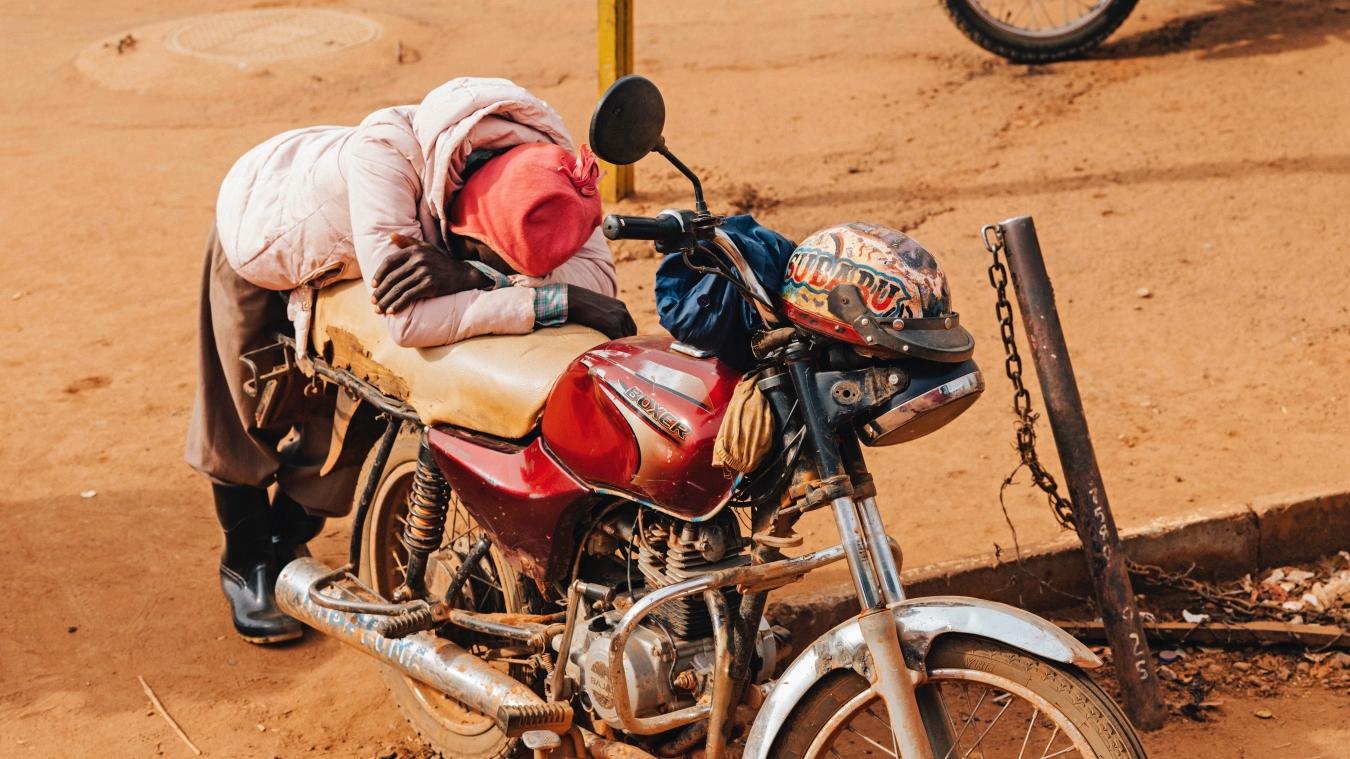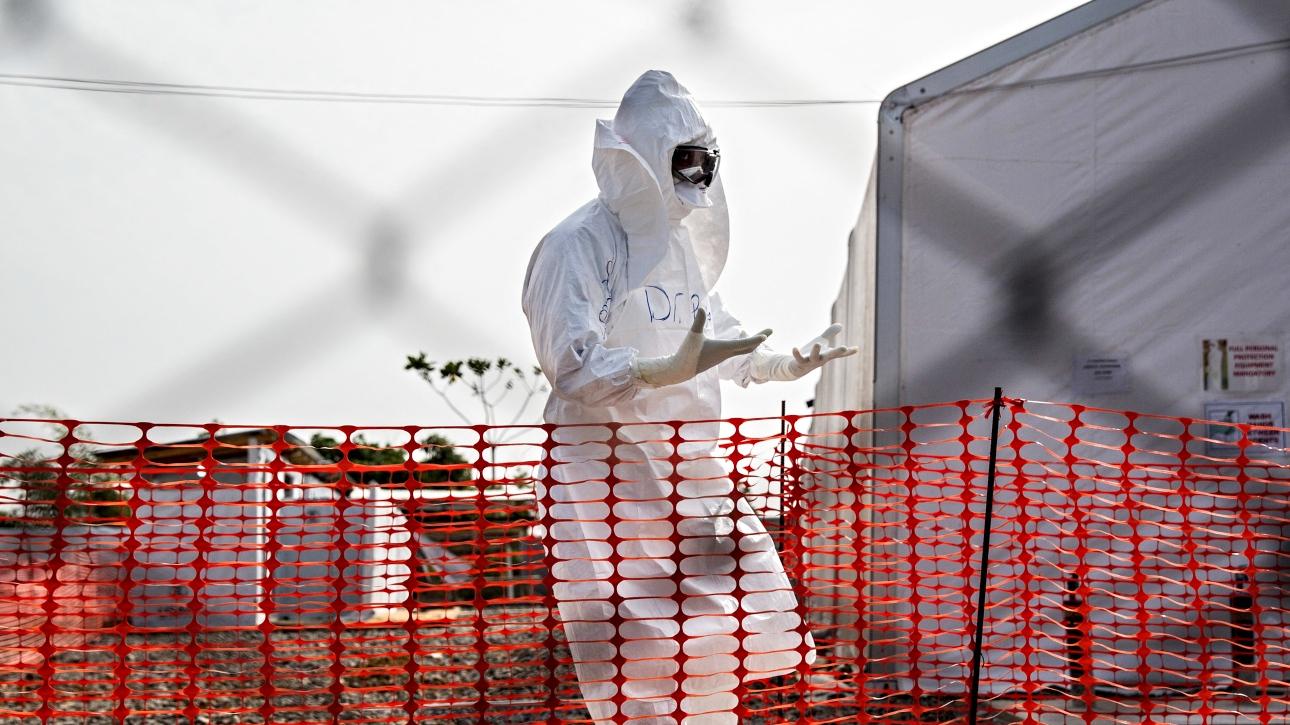Ahead of presidential, parliamentary and local elections planned for 2021, urban food relief distribution in Uganda has become politicised as people struggle under COVID-19 lockdown measures. As narratives of ‘liberation’ resurface amid the government’s health response, the securitisation of corona-politics is further stifling opposition parties across the country. Food distribution efforts present a snapshot of how the government is using the COVID-19 response to generate electoral support and control political debate.
This post is part one in a miniseries exploring the relationship between corona-politics and food distribution in Uganda.
Stella Nyanzi had only recently been released from a sixteen month jail term for publishing a poem on Facebook about Ugandan president Yoweri Museveni mother’s vagina when she was arrested again on May 18 2020 in downtown Kampala. The academic, activist and poet was one of a number of protesters marching through the streets to deliver a petition to the Prime Minister in his capacity as head of the National Taskforce on COVID-19. Organised by the Women’s Protest Working Group, the petition demanded an end to the suffering occasioned by anti-COVID 19 measures, notably the lack of adequate food relief for the many millions of people reliant on an informal economy effectively frozen by public health controls. ‘I am marching through Kampala city’ she wrote, ‘with my empty saucepans and my hungry children, in protest against the HUNGER PANDEMIC spreading all over Uganda during the Covid-19 lockdown.’ These efforts were dismissed by a Kampala Metropolitan Spokesperson as ‘mere politiciking’ and Nyanzi was charged with inciting violence.
Public concern about food security, particularly in urban areas, has been a major challenge and opportunity for the government since lockdown measures were imposed following Uganda’s first confirmed case of COVID-19 on 21 March 2020. With Presidential, parliamentary and local elections slated to take place in Uganda in early 2021, corona-politics are functioning in campaign mode and food relief has become a pork barrel for distribution efforts that prioritise political interests over public need. Commentators have argued that while President Museveni is not a believer in government welfare handouts, with an election on the horizon there was no alternative but to position his National Resistance Movement (NRM) government at the forefront of food relief efforts. This has taken some interesting twists and turns at the national level, not least a bizarre video posted by Museveni involving weighing scales and some pre-prepared posho, in which he demonstrates how to responsibly consume rations so as to survive hunger.
Cometh the hour, cometh the man
In late March 2020 the charismatic and youthful opposition MP for Kampala Central, Muhammad Nsereko, pulled into a poor city neighbourhood with ‘a truckload’ of maize meal and beans. The journalist Joseph Were described him as ‘clad in a sleeve-less T-shirt, loose pants and face hidden behind intimidating looking gas mask and googles’. Perhaps channelling an aid worker, or a hero in a disaster movie, he presented himself as a saviour, distributing personally acquired food to boda boda drivers, sex workers and other vulnerable people who were struggling to eat. Chaos ensued when crowds gathered in contravention of social distancing guidelines and the police eventually put a stop to the situation, citing presidential directives. This was a deeply unpopular move amongst people who were hungry and just wanting to collect some food that was on offer.
The optics were win-win for Nsereko, and rattled Museveni. The episode presented the intolerable prospect of opposition politicians distributing food in exchange for political support at a time of national crisis and in the run up to national elections. No-one understands this tactic better than the President. Museveni has a controversial dedicated budget for Presidential pledges and donations which he justifies on moral grounds: ‘as a matter of faith, I cannot live comfortably in the neighbourhood of poor people without doing something for them’. Richard Vokes has written about how, during election campaigns, the president and his supporters present him as ‘the source of all power from which things derive’. This is designed to makes a vote for the opposition seem futile, but it only works if the opposition is not able use the same methods at any sort of scale.
A few days after Nsereko offered up food to Kampala residents, and with only thirteen confirmed COVID-19 cases in Uganda, the President announced one of the strictest nationwide lockdowns in Africa. This included banning all food distribution by individuals including, of course, elected MPs. The rationale was that food distribution needed to be regulated and handled in such a way that social distancing could be observed. It would now be administered through the National Task Force on COVID-19 with devolved District Task Forces, chaired by NRM-appointed Resident District Commissioners (RDC) to implement the governments pandemic response at the local level.
The President directed the police to ‘arrest the opportunistic and irresponsible politicians who try to distribute food for cheap popularity’ and weaponised COVID-19 in the process: ‘anybody involved in that effort’, he said, would be arrested and ‘charged with attempted murder’. Government distribution efforts were quickly concentrated in opposition strongholds of Greater Kampala, particularly amongst organised groups with the power to mobilise votes for the NRM, including the taxi operators. This situation led the Speaker of Parliament, Rebecca Kadaga, to complain in early April that ‘we have seen many such projects start and end in Kampala and Wakiso,’ setting in motion an unedifying battle between the executive and parliament over the use of budgetary resources to fight COVID-19.
Taking opposition MPs out of the picture
The NRM’s political control of the national and local COVID-19 response through the DTF structure is bolstered by its successful efforts to enfeeble the role of opposition MPs in their constituencies. Apparently concerned about early evidence of the politicisation of food distribution at the national level, on 8 April parliament voted to divide up part of the 10 billion Ugandan Shillings (roughly $2.6 million) allocated to the legislature as part of an emergency COVID-19 budget into individual payments of 20 million Ugandan Shillings (roughly $5000), which would be directly wired to each MP to ‘sensitise’ constituents about the pandemic. While the Speaker of Parliament and supportive MPs argued that this would allow for a more equitable, nation-wide distribution of resources in the effort to deal with COVID-19, this was a controversial move, and Museveni took the moral high-ground, calling the allocation illegal and ‘morally reprehensible’. Pitting the legislature against the executive, and correctly judging the public mood, he argued that MPs were giving ‘themselves money for personal use when the country is in such a crises’ and that such conduct was ‘totally unacceptable to the NRM’.
In late April, the High Court ordered that MPs pay the money back or re-allocate it to the National or District COVID-19 taskforce. Two weeks later, if reports are to be believed, the direct allocation of cash to MPs in the fight against the coronavirus was no longer considered ‘unacceptable to the NRM’. In mid-May NRM MPs allegedly received 40 million shillings each to help them pay back the 20 million that they may have already spent, and to ‘facilitate’ their COVID-19 work in their constituencies. Not all NRM MPs got the pay-out; it was for those who had, a few years back, supported lifting the presidential age limit allowing Museveni to run again in 2021, and those who had signed up to the parliamentary motion celebrating the President for his exemplary leadership in the fight against the pandemic.
Meanwhile, opposition MPs have been left out in the cold when it comes to decisions about how best to mitigate the harmful impacts of public health controls in their constituencies. In Gulu, the largest urban centre in Uganda’s northern region, MPs representing the town, all of whom are from opposition parties, have been sidelined by the DTF. During a meeting in late May, the Gulu DTF refused requests from all three of them for their 20 million shillings (now reimbursed and allocated to the taskforce) to be targeted towards what they assessed as the most deserving groups and causes, including food aid for former Lord’s Resistance Army abductees (women and children) and food aid for mothers and child-headed homes. The RDC made it clear that while MPs were welcome to attend the DTF meetings, it was up to the district, not the parliamentarians, who constituted the priority groups.
In other parts of the country, opposition MPs have been arrested and tortured for violating lockdown regulations to support constituents. Sylvie Namwase has written about the militarised response to COVID-19 and the ways in which it has ‘magnified’ political violence and enabled the excessive use of force by the police, army and Local Defence Units (LDUs). Francis Zake MP, for example, was arrested from his home north of Kampala after reports that he had been distributing food. He was reportedly held at a Special Investigations Unit and beaten up so badly that he was unable to walk or see.
Following the science into 2021?
COVID-19 has handed the ruling NRM a powerful campaigning platform and the ideal pretext to supress opposition activities via assembly and movement controls ahead of the 2021 elections. That is if they happen at all. While the Electoral Commission announced a January/February window for the elections, Museveni now says, somewhat ominously, that he will be led by the science when it comes to the timetabling. In the meantime his weekly COVID-19 presidential address is a pedestal from which NRM messaging reaches a mass audience.
Political commentators, Isaac Khisa and Godber Tumushabe, explain how liberation narratives are being deployed by the President to ‘invoke the spirit of militarism,’ comparing the battle against COVID-19 to the battle the NRM fought to ‘liberate’ Uganda over three decades ago. As infection rates increase this message will become part and parcel of what Sarah Jenkins has described as the politics of fear and the securitisation of Ugandan elections. At the same time questions remain over how far President Museveni can diverge attention away from the fact that, 34 years since that battle was won, health services to control and treat the virus are wholly inadequate across the country and that, for all the talk of pandemic-linked food insecurity, nearly half of the population already consumes less than half the calories they need each day. Maybe, as Gyekye Tanoh has argued in his analysis of the broader political economy of COVID-19, ‘now is the moment to build unity behind an alternative social structure to capitalism in Africa and the Global North’.
Photo: Meat skewers in Uganda. Credit: Adam Cohn licensed under creative commons (CC BY-NC-ND 2.0).





